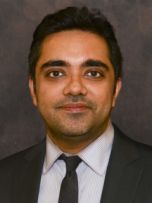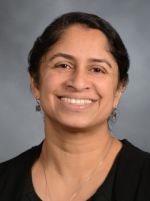Two Weill Cornell Medicine Faculty Members Elected to ASCI
Two Weill Cornell Medicine physician-scientists, Dr. Niroshana Anandasabapathy and Dr. Rohit Chandwani, have been elected members of the American Society for Clinical Investigation (ASCI) for 2025.
One of the nation’s oldest nonprofit medical honor societies, the ASCI is comprised of more than 3,000 physician-scientists serving in the upper ranks of academic medicine and industry. Members are renowned for translating innovative laboratory findings into clinical advancements in their respective fields. Drs. Anandasabapathy and Chandwani join 97 other new members representing 46 institutions who were elected this year and will be officially inducted at the organization’s annual meeting in April.

Dr. Rohit Chandwani
“It is definitely an honor I greatly appreciate, and I couldn’t be more delighted to be part of the ASCI community,” said Dr. Chandwani, the Frank Glenn Faculty Scholar in Surgery and the Mildred L. and John F. Rasweiler Research Scholar in Cancer Research, and an assistant professor of surgery and of cell and developmental biology at Weill Cornell Medicine.
Using the pancreas as a model, Dr. Chandwani’s research explores how changes in gene regulation affect how cells develop, respond to inflammation and become cancerous. His efforts aim to uncover how cancer forms and progresses beyond genetic mutations alone, potentially fueling improved treatments. “I’m a clinician as well, so our research is in service of trying to acquire a broader understanding of how those mechanisms can be targeted in disease,” said Dr. Chandwani, who is a member of the Sandra and Edward Meyer Cancer Center and the Englander Institute for Precision Medicine at Weill Cornell Medicine.
Dr. Chandwani and his team have recently been able to define the biological and clinical differences in KRAS gene mutations, which are present in 95% of pancreatic cancer cases. Since precision medicine efforts to target these malignancies have largely failed thus far, he noted, these findings may pave a new path forward in this area.
Dr. Anandasabapathy is an associate professor of dermatology and of dermatology in microbiology and immunology at Weill Cornell Medicine. Her research focuses on how the immune system stays in balance and “how that balance is different in the setting of vaccines, viruses and cancers such as melanoma,” said Dr. Anandasabapathy, also a member of the Sandra and Edward Meyer Cancer Center and the Englander Institute for Precision Medicine.

Dr. Niroshana Anandasabapathy
“The ASCI is an esteemed institution, so it’s an honor to be elected,” she said. “For me, it means the work we’re doing has human translational impact, and that’s gratifying.”
Using both human tissues and advanced mouse models, Dr. Anandasabathy’s team investigates how immune cells like dendritic and T cells communicate with each other and work together to recognize and fight cancer, while also avoiding harmful overreactions. By understanding these processes, her research seeks to improve cancer treatments and strengthen the body’s natural defenses. “It’s a path toward better therapies, but based on the most basic and foundational discovery,” she said.
Membership in the ASCI will offer Drs. Anandasabapathy and Chandwani opportunities to network with other physician-scientists conducting exceptional research in other medical specialties.
“Being part of this group will enable greater scientific discourse and interactions,” Dr. Anandasabapathy said. “As a woman in science, it’s important to gain increased access to community and peer-to-peer exchanges.”
As a surgeon-scientist, a small subset of physician-scientists, Dr. Chandwani feels similarly. “It’s challenging to find others in the same boat,” he said. “Being connected with this community has enormous value, allowing me to draw from their cumulative knowledge in this space.”



